K-12 education bills: What passed, what failed in Tennessee's legislative session
From expanding school vouchers to allowing teachers to carry guns, Tennessee's legislative session was packed with controversial bills that dealt with K-12 schools and education. Some passed, others did not.
In the final days of the nearly four-month session, Gov. Bill Lee's push to expand statewide taxpayer-funded vouchers that families could use toward private schooling failed after lawmakers could not agree on how to enact it. It was one of Lee's most ambitious education initiatives to date and spurred protests and scrutiny throughout the session. If passed, the plan would have eventually expanded on the state's existing program and provided vouchers regardless of income.
State Republicans drove the passage of a hotly debated bill that allows some K-12 teachers and staff to carry concealed guns in schools. Those who wish to carry must meet several requirements including training and background checks. Districts also have the power to say no to arming teachers and staff. In fact, several have already said they won't allow anyone but trained law enforcement officers, including school resource officers, to carry weapons at schools.
Here's a (by no means exhaustive) look at other measures affecting schools and children that passed or failed this session.
'Extremely disappointed': TN school voucher bill dead for the year
Arming teachers: Tennessee lawmakers pass bill allowing teachers, school staff to carry concealed handguns
What passed
Who decides on holding back fourth graders
SB2183/HB2326 leaves decisions on holding back thousands of fourth graders affected by Tennessee's controversial reading law up to schools and parents. The bill passed the state legislature on Thursday.
A lesser-known part of the reading law could have held back up to 6,000 fourth graders this year, according to a projection from the Tennessee Department of Education. The newly passed bill removes that mandate. The Senate voted to pass the bill 27-3. The House voted 82-3. It was still awaiting transmission to Lee's desk as of Friday.
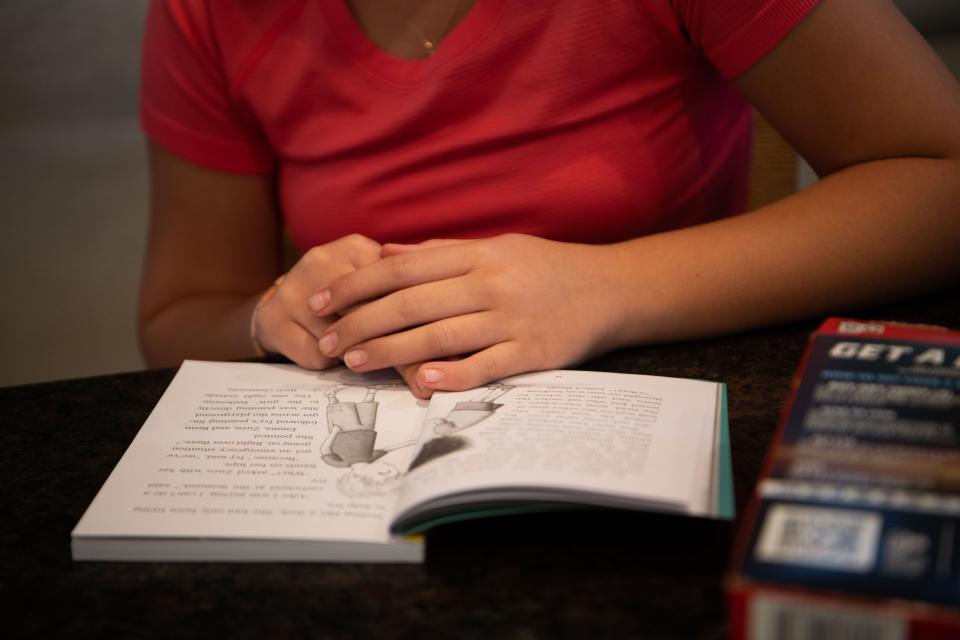
Read more: Lawmakers OK bill to put decision on holding back 4th graders in hands of schools, parents
Fire alarm procedures in schools
SB1979/HB1644 requires all Tennessee schools — private, public, religious and charter — to develop a procedure to determine the cause of a fire alarm, establish procedures for how students, teachers, staff and volunteers respond depending on the reason for the alarm, and hold annual training for those procedures. The intent is to prepare schools in case a fire alarm is activated due to the presence of an active shooter or threat other than a fire. Schools will have to implement the new policy by Jan. 1, 2025. After it passed both the House and Senate unanimously, Lee signed it into law on March 12.
Fire alarm bill: Covenant families recount Nashville school shooting in emotional special session testimony
Carrying handguns in private schools
SB1708/HB1631 clarifies an existing Tennessee law to say that private schools serving students from pre-K through 12th grade can adopt a handgun carry policy on school property. The bill passed the full House in a 74-23 vote and the Senate in a 26-5 vote. Lee signed it into law on April 22.
Age-appropriate firearm instruction
SB2923/HB2882 requires districts to provide students with firearm safety instruction that is both age- and grade-appropriate, starting in the 2025-26 school year. The bill passed the House in a 79-12 vote and the Senate in a 24-3 vote. Lee signed it into law on April 23.
Threats of mass violence at schools become felonies
SB2263/HB2198 makes it a Class E felony to threaten to commit an act of mass violence at a school or a school-related activity. Both acts currently carry a Class A misdemeanor penalty. The bill passed the House in a 90-5 vote, with five abstaining, and the Senate in a 30-0 vote, with one abstaining. It was still awaiting Lee's signature as of Friday.
Therapy dogs in schools
SB1867/HB1908 establishes a one-year pilot program to place therapy dogs in five public schools in the 2024-25 school year. It passed the House in a 95-1 vote, with one abstaining, and the Senate in a 28-0 vote, with one abstaining. It was still awaiting transmission to Lee's desk as of Friday.
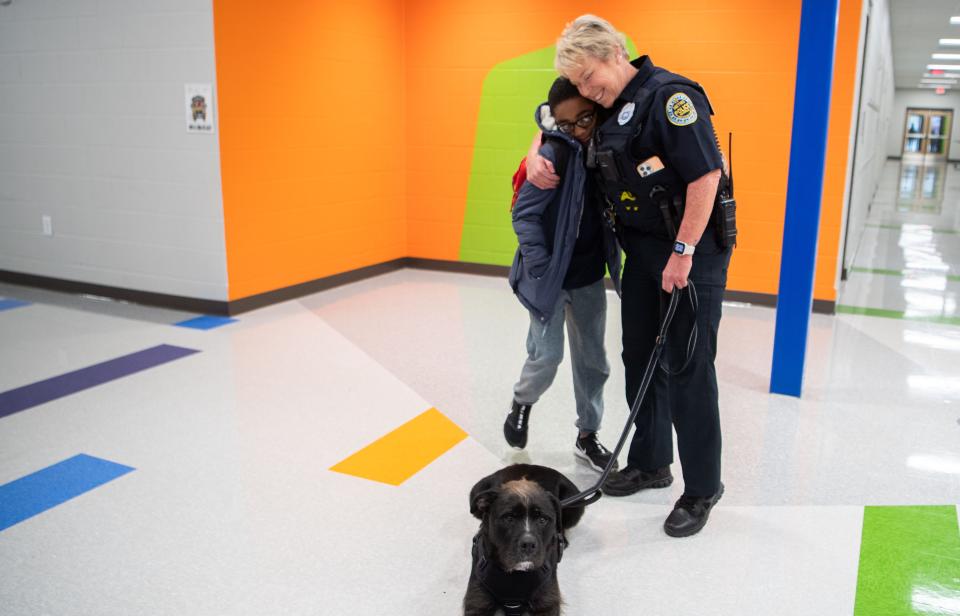
Family leave for public charter school employees
SB2655/HB2697 requires public charter schools to provide employees six work weeks of paid leave after the birth or stillbirth of a child, or the adoption of a newly placed child. The bill passed both the House and Senate unanimously. It was still awaiting Lee's signature as of Friday.
School nurse to student ratio reduction
SB2703/HB2158 reduces the school-nurse-to-student ratio from one nurse per 3,000 students to one nurse per 750 students. It unanimously passed the House and passed the Senate 28-1. It was still awaiting Lee's signature as of Friday.
What failed or stalled out
Ban on pride and trans flags in schools
SB1722/HB1605 would have banned public schools and public charter schools from displaying any flag other than the official U.S. and Tennessee state flags. This would prohibit schools from displaying any other flags, including rainbow pride flags, pride progress flags and transgender rights flags. As written, it would have even banned flags such as the POW/MIA flag remembering those who were prisoners of war or missing in action.
While it passed the House, it narrowly failed the Senate.
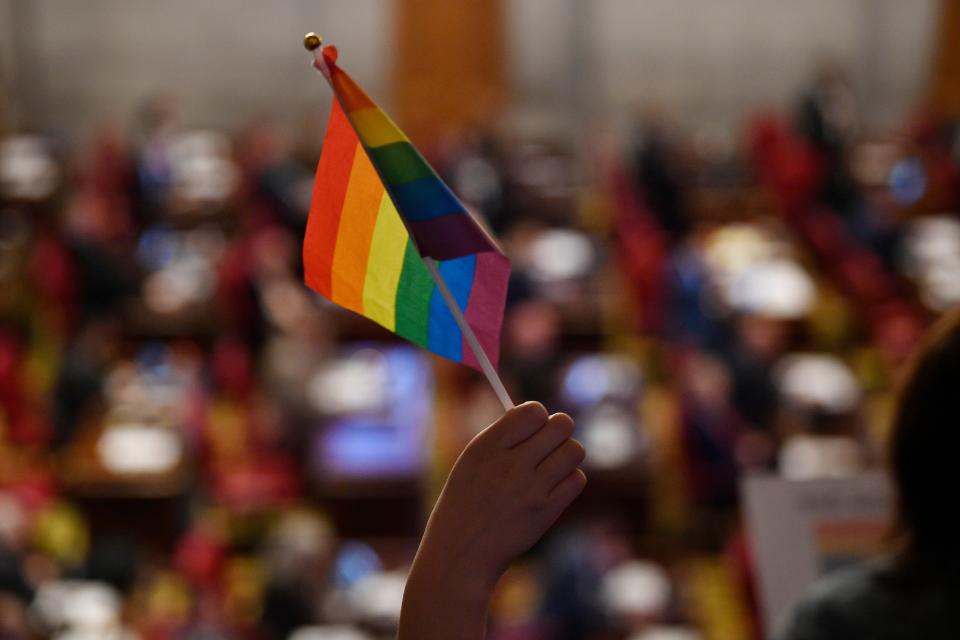
Bipartisan blockage: Tennessee bill to ban pride flags from public schools fails in Senate
Free school lunches
A slew of Democrat-sponsored bills to provide universal free school breakfasts and lunches in public schools either failed or timed out during this session. The measures included SB1790/HB1844, SB1896/HB1860, SB2389/HB2498 SB2455/HB2335 and SB2465/HB2652.
Expanding who can carry handguns on school property
SB2788/HB2883 would have allowed the following people to carry handguns, concealed or open, onto school property and school buses: on- and off-duty law enforcement officers, active duty and retired U.S. military members, and (except in "certain circumstances") enhanced handgun carry permit holders.
The House version of bill was taken off notice and was never heard by the Senate.
Retired officers, veterans as school resource officers
SB2025/HB1899 would have allowed retired law enforcement officers from federal, state or local agencies and honorably discharged U.S. veterans to serve as school resource officers.
The measure passed the House but was never heard by the Senate.
Expanding who can challenge books in schools
SB1858/HB1632 would have allowed parents to sue a local public school or public charter school to challenge books that violate the Age-Appropriate Materials Act of 2022. Parents of children who attend or are eligible to attend those schools could file suit over books and other materials deemed "harmful to minors" under the existing law. Currently, the law allows employees, students and parents of students enrolled in a public school district to challenge materials used in the classroom — but it does not mention lawsuits.
The bill passed the Senate but was taken off notice in the House.
Repealing the Education Savings Account program
HB0741/SB1024 would have repealed the state’s Education Savings Account pilot program. The program provides taxpayer-funded vouchers that can be applied toward K-12 private school costs. Sen. Heidi Campbell, D-Nashville, first introduced the Senate version of the bill during the 2023 regular legislative session before it was deferred to the current session.
The bill failed in the House K-12 Subcommittee after it was not seconded and was never heard by the Senate.
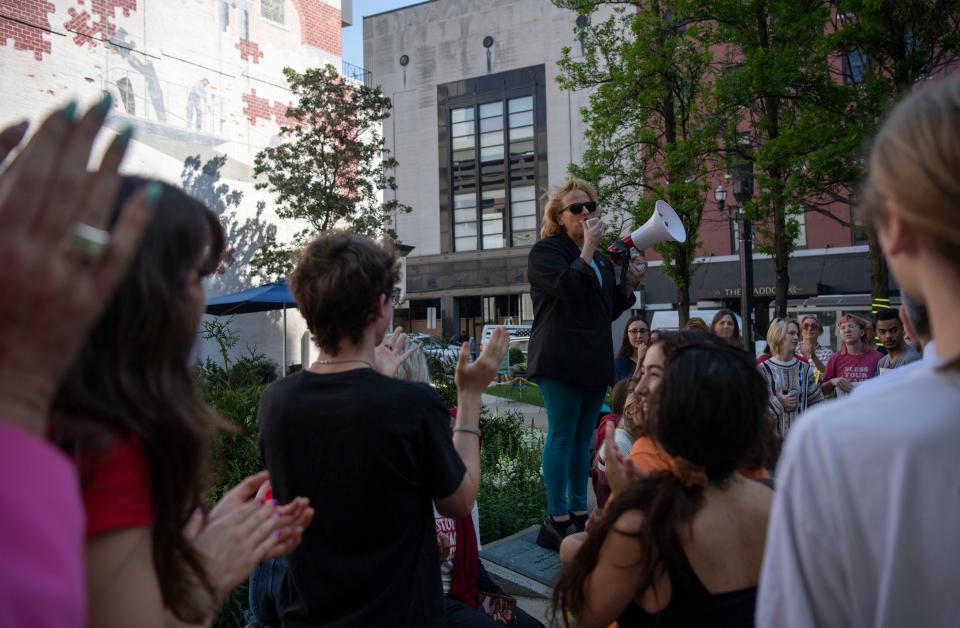
Districts given money equal to school vouchers
SB1924/HB2049 would require the state to give money back to districts if one of their students was given a state-funded scholarship to attend a private K-12 school. The amount given to the district would be equivalent to that of the scholarship if the student were enrolled at the district before leaving to attend the private school.
Neither chamber took up the bill.
Metal detectors in schools
SB2765/HB2344 would have established funding for walk-through metal detectors for school districts.
The bill was taken off notice in the House on April 17 and never taken back up by lawmakers.
Testing, payback plan for private schools that accept vouchers
SB2273/HB2450 would have required private schools that accept publicly funded vouchers toward student tuition to administer the same state-required testing as public schools. It also would require those schools to pay back a prorated amount of the scholarship if the student left the private school before the end of the school year.
The Senate version of the bill stalled out in a subcommittee while the House version was sent to summer study.
Removing ‘sexually explicit material’ from school libraries
SB2107/HB2457 would have required the removal of “sexually explicit material” from libraries in public schools and also established a process to evaluate library materials for such content.
The Senate deferred the bill to summer study, and it was never heard by the House.
Complaints on 'prohibited concepts'
SB1141/HB1377 would have established a process for people to file complaints against a public school district or public charter school for teaching or promoting "prohibited concepts" detailed under a controversial state law first passed in 2021. The state's prohibited concepts law bans instruction of a number of concepts, including that the United States is inherently racist or that "an individual, by virtue of the individual’s race or sex, is inherently privileged, racist, sexist, or oppressive, whether consciously or subconsciously."
The bill was first filed during last year's session, where it failed in a Senate committee. It was brought back in the House this session before being taken off notice there. The Senate never took the measure back up.
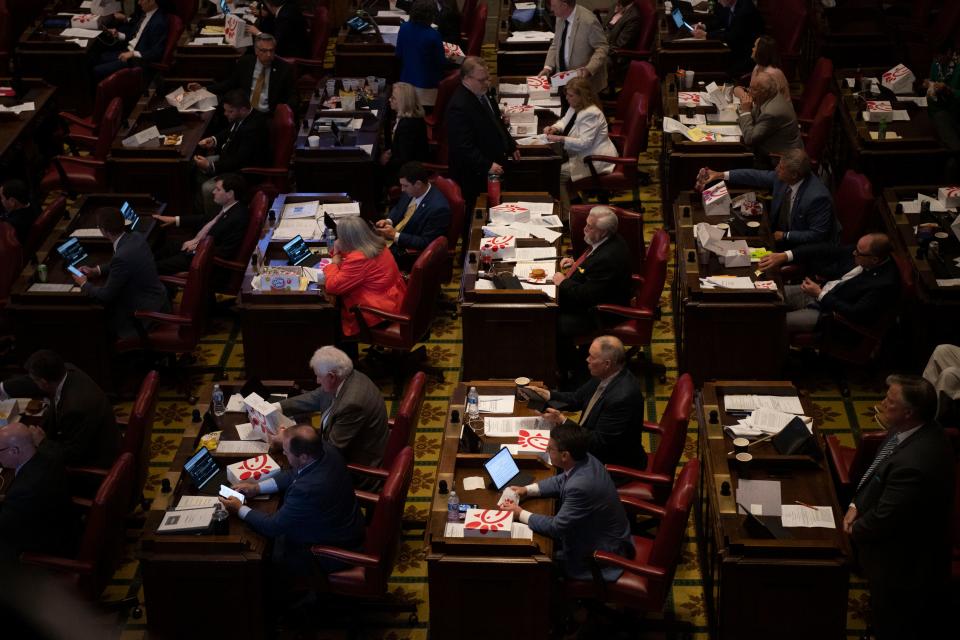
Expanding a Common Core materials ban
SB1696/HB1724 would ban any textbooks and instructional materials aligned to, associated with or derived from Common Core State Standards. Currently, materials that were created exclusively to align with Common Core are prohibited in Tennessee public schools. The bill would expand that list.
Neither chamber took up the bill.
Scholarships for children with a parent in Tennessee
SB2473/HB2756 would have extended the Tennessee HOPE academic scholarship program to out-of-state high schoolers who have at least one parent who has resided in Tennessee for at least 10 years. It would also require those students to be considered for admission to state schools.
Neither chamber took up the bill.
Protecting student pedestrians
SB1996/HB2175 would have established a grant for local governments to design, construct and repair sidewalk infrastructure around public schools.
The bill was taken off notice in the House and did not advance past the Senate Transportation and Safety Committee.
Grants for wearable emergency alert systems
SB1589/HB1627 would have created a school safety grant for all schools — public, charter, private and religious — to purchase a wearable emergency alert system for all teachers and substitute teachers. The Tennessee Department of Education would award the grants, be required to study and collect data on them and report findings annually to the state House and Senate.
The bill was withdrawn in the House and never heard by the Senate.
Voluntary Pre-K programs
SB2754/HB2769 would have established up to 1,200 voluntary pre-K programs for the 2024-25 school year, subject to appropriation.
The bill failed in the House K-12 Subcommittee of Education Administration and was never heard by the Senate.
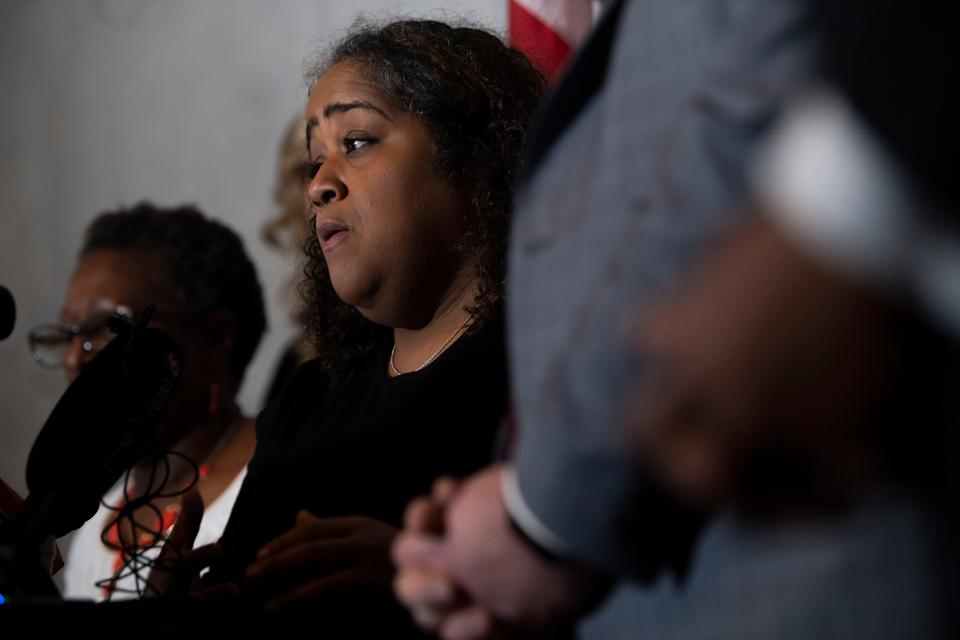
Reimbursing teachers for child care costs
SB1718/HB1709 proposed reimbursing full-time public school teachers for 66% of their monthly child care expenses. The child care would need to come from a program that is certified by the state Department of Education or licensed by the Department of Human Services. The state would have partially reimbursed districts and public charter schools for the costs.
The bill was withdrawn in the House and never heard by the Senate.
Tuition discounts for full-time teachers
SB2930/HB2488 would have given a 25% tuition discount to full-time, certified public school teachers who wished to take courses relevant to their job at a public college or university.
The House version of the bill was taken off notice. It was never heard by the Senate.
Student loan repayment for school nurses
SB2294/HB2596 would have created a grant program to repay student loans for advanced practice registered nurses to incentivize them to work in areas with health resource shortages.
The bill was taken off notice in the House and never heard by the Senate.
Tuition discounts for children of public school employees
SB2856/HB2705 would have given a 25% tuition discount to children of full-time public school employees who have worked in a position, other than teaching, for at least seven consecutive years.
The bill failed in the Senate Education Committee and was taken off notice in the House.
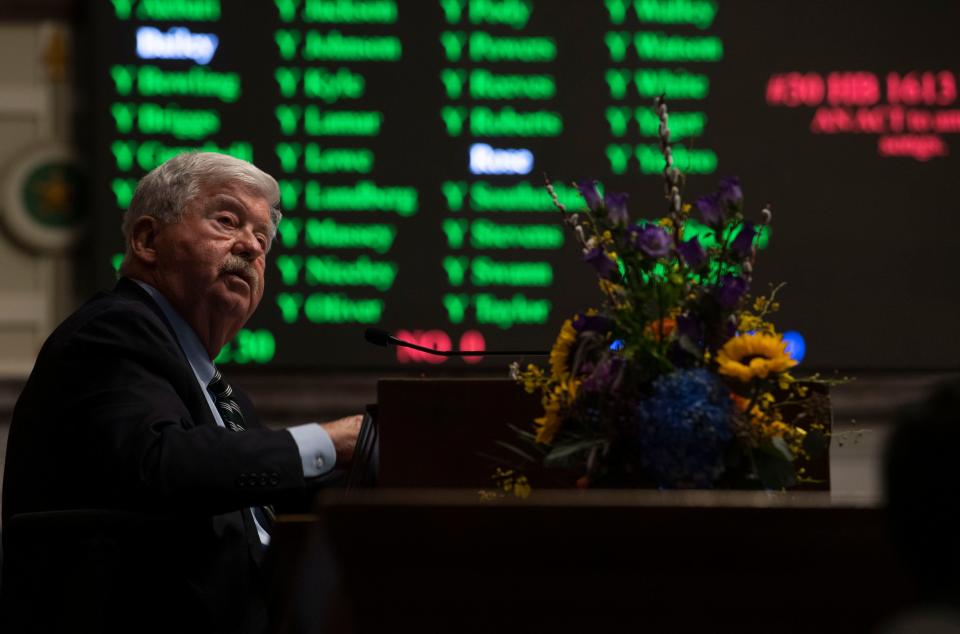
Tuition discounts for children of Tennessee Air, Army National Guard members
SB 1647/HB1929 would have given a 25% tuition discount at state institutions of higher learning to children of active or retired Tennessee Army National Guard or Tennessee Air National Guard members.
The bill was taken off notice in the House. It did not advance past the Senate Education Committee.
State scholarships for cosmetology, barber, other trade schools
SB1752/HB1809 would have made it so full-time students in private, for-profit schools for cosmetology, esthiology and barbering qualified for state-funded Tennessee Promise scholarships.
The bill was taken off notice in the House. It was never heard by the Senate.
A lower Tennessee Reconnect Grant age requirement
SB1672/HB213 would have lowered the age requirement for the Tennessee Reconnect Grant to 21. The current minimum age requirement for the grant, which provides adults opportunities to earn an associate degree or technical certificate tuition-free, is 23.
The House version of the bill was taken off notice. The bill did not advance past the Senate Education Committee.
This article originally appeared on Nashville Tennessean: Tennessee K-12 bills: What passed, failed in 2024 session

